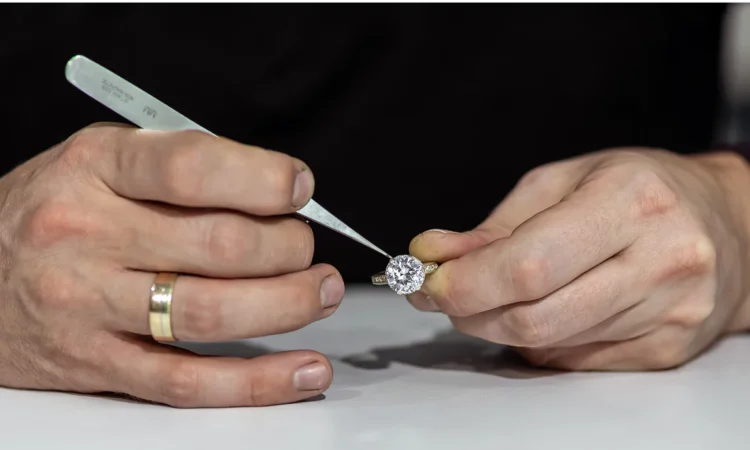
The jewelry resale market has grown rapidly in recent years, with more people looking to turn their valuables into instant cash. Whether you want to sell diamonds in New York or trade in unwanted gold, the promise of quick returns can be tempting.
But alongside legitimate opportunities, there’s also a rise in scams and dishonest practices targeting unsuspecting sellers. Be it undervalued appraisals or fraudulent buyers, the risks are very real. To protect yourself, you must understand how the market works and learn how to identify trustworthy buyers who will give you fair value for your precious assets.
Why Jewelry Sellers Are Targets for Scams
The decision to sell your diamonds or exchange gold for quick cash often happens during times of financial urgency, such as unexpected expenses, medical bills, or major life changes. This urgency can make you more vulnerable to manipulation. Scammers know that many people entering the jewelry resale market are not experts in diamond grading, gold purity, or market pricing, which gives dishonest buyers an advantage.
Another factor is the emotional attachment tied to jewelry, like an inherited diamond ring or a piece of gold gifted on a special occasion. Sellers may be pressured into making fast decisions without realizing they’re being shortchanged. Because the value of gold and diamonds fluctuates with the global market, unethical buyers exploit this uncertainty by offering less than fair value. With these high stakes, emotional pressure, and the lack of transparency, you become a prime target for fraud.
Common Scams in the Jewelry Market
When you decide to sell your diamonds or trade gold for quick cash, it’s important to recognize the tricks that dishonest buyers often use. Some of the most common scams include:
- Undervaluing Diamonds – Shady buyers may exaggerate flaws or downplay a diamond’s quality to justify a much lower offer. Without a grading certificate, you are especially vulnerable.
- False Weight and Purity Measurements – Some gold buyers manipulate scales or misrepresent karat levels, paying you for less gold than you actually have. This is a frequent scam in the cash for gold
- Switch-and-Swap Tactics – Unscrupulous dealers may switch your genuine diamond or gold item with a fake during evaluation, leaving you with little recourse.
- “Too Good to Be True” Offers – Scammers lure sellers with inflated promises, only to backtrack with excuses or last-minute reductions once you’re committed to the sale.
These practices not only cheat sellers out of fair value but also damage trust in the resale industry. Knowing these warning signs is the first step toward protecting your valuables.
Safe Paths to Sell Diamonds and Gold
While scams exist, there are also reliable and secure ways to sell your diamonds or exchange gold for quick liquidity. Taking a few precautionary steps can make the difference between being underpaid and receiving fair value.
- Work with Reputable Gold Buyers – Choose established businesses with licenses, strong customer reviews, and a physical presence. Reputable gold buyers are transparent about pricing and will test your jewelry in front of you.
- Request Transparent Appraisals – Don’t settle for a single offer. Seek multiple evaluations to compare prices and ensure fairness. Reliable buyers provide clear explanations of how they calculated the value.
- Understand How Cash for Gold Works – Gold is valued based on weight and purity. Knowing the karat of your jewelry and current market rates helps you spot unrealistic offers.
- Obtain Diamond Certification – If you plan to sell your diamonds, having a GIA or IGI certificate provides proof of quality and prevents undervaluation.
- Compare Local vs. Online Options – Local buyers allow face-to-face interaction and instant payouts, while reputable online platforms can sometimes offer better rates. Research both to find the best fit.
Red Flags to Watch Out For
Even with trusted options available, spotting warning signs is crucial before you sell your diamonds or trade gold for cash. Keep an eye out for these red flags:
- Refusal to Test in Front of You – Honest gold buyers will weigh and test your jewelry in your presence. If they insist on taking items out of sight, it’s a major concern.
- High-Pressure Tactics – Phrases like “prices are dropping fast” or “this offer won’t last” are designed to rush you into a bad deal.
- No Physical Address or Traceable Identity – Be wary of buyers operating only through temporary kiosks, vague ads, or anonymous online profiles.
- Lack of Paperwork – A legitimate transaction should always include receipts, appraisal notes, or written offers. Without documentation, you have no protection if something goes wrong.
Conclusion
Selling your jewelry can be a smart way to make some quick cash, but it’s essential to approach the process with caution. The key is awareness. By understanding common scams, choosing reputable professionals, and watching for red flags, you can protect your valuables and ease your worries.
With the right steps, selling jewelry becomes not just safe but rewarding, allowing you to get the fair value you deserve.




